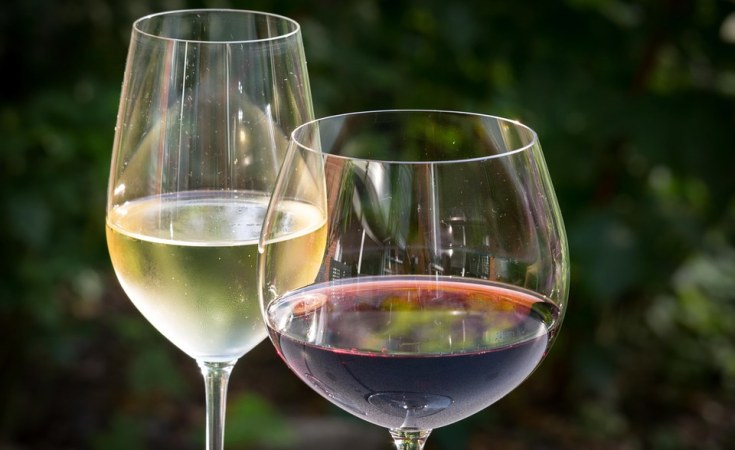When Jean Aberd Bavakure, Pierre Claver Nsanzumuhire and Chris Munyankindi graduated from the University of Rwanda's College of Agriculture, Animal Science and Veterinary Medicine, last year, they were not following up on job applications like many fresh university graduates often do.
Instead, they hit the road running and were busy working on their own project. With their Bachelor's degree in agribusiness, they knew how to apply business strategies and economic principles to solve problems in production, distribution and consumption of agricultural produce and they couldn't wait to go.
Earlier, while still at college, they teamed up to produce wine from coffee, tree tomatoes, papaya and lemons. They had big dreams.
Their unique project won a Rwf3.5 million cash prize from YouthConnekt awards in April. In June, they exhibited their product during the Commonwealth Heads of Government Meeting (CHOGM) held in Kigali.
Nyuzuza Wine is made from coffee, lemon, papaya and tomatoes.
Nsanzumuhire told Doing Business that the idea came when they were at university pursuing an agribusiness course.
The group's wine making operation is now based in Jenda sector, in Nyabihu District, where their college facilitated with working space. The area has sufficient raw materials for their project too.
"We were in the same class at university. Back in 2018, we used to attend different seminars aimed at boosting entrepreneurship among the youth to prepare their future and make them ready for the labour market. That is when we started thinking about how we could make use of the gained knowledge," Nsanzumuhire told Doing Business.
"The career guidance day that takes place every year at UR also nurtured and guided us on how to develop projects and how to present them in different competitions. One day we also attended training on food processing which helped us to think about and select a food processing project. We conducted research and trials on producing wine from coffee, papaya, lemon and tree tomatoes using the university laboratories."
Their project first got a Rwf100, 000 cash prize during a career day at university when they emerged fourth best presenters.
Later, they participated in another competition bringing together youth with food processing ideas and secured Rwf200, 000 after emerging third best. Things were looking up, and morale was high.
Their wine is packaged in 75 centilitre bottles and costs Rwf7,000.
Come 2021, the trio showed up at the YouthConnekt awards. They won at District, Provincial and National levels.
"At national level we were among the top 10 winners among over 200 projects that were competing and we got a Rwf3.5 million cash prize," Nsanzumuhire said.
The money was put to good use, Nsanzumuhire said, noting that they bought some wine processing machines.
"We think there are huge opportunities because Rwanda mostly relies on imported wine. Once our business expands, we will play a big role in reducing the import bill. We did an assessment and found that we are the only ones in Rwanda making wine from coffee, papaya, lemon and tree tomatoes."
We started with a university food processing lab
They started by making 10 bottles of 75 centiliters each as a sample.
"We would use the sample to present in different competitions and exhibitions. We gradually increased the sample as we got little sums of money. We have a processing and blending machine yet we started with a university food processing lab," he said.
Considering that wine takes time to mature, from September 2021, to April 2022, they produced 30 litres of wine.
"Today we have a tank that can store 500 litres. And we already have 300 litres of wine that will mature and be ready for consumption soon," he said.
Since, December 2021, they are now able to rent their production workshop.
"We are packaging wine in bottles of 75 centiliters. We sell each bottle at Rwf7, 000. By 2023, we will be producing and selling 2,780 bottles of wine, every year. Meanwhile we are working hard so that we get a Standards Mark to be able to better tap into the market."
They need Rwf22 million to make it, he noted, sounding optimistic.
The team hired a food scientist to help boost the quality and standards of their wine so as to acquire the Standards Mark (SMARK).
Normally, for local nascent innovators, the Rwanda Standards Board (RSB) introduced Zamukana Ubuziranenge, a program that assists local industries to attain the desired quality and safety performance. The program also aims at building strong quality in Rwandan SMEs.
Under the initiative, small industries are trained in standards and quality assurance to help them improve the quality and standards of their products so they can qualify for a Standards Mark. The latter helps them become more competitive on the local and regional markets.
"We want to be part of the program to pave the way for our getting the Standards Mark," Nsanzumuhire said.
In the meantime, they are selling their wine with support from partners including their former university.
As they grow in business, they have plans to start growing their own coffee, papaya, lemon and tree tomatoes - their main raw materials - as well as work more closely with farmers to ensure steady raw material supplies, among other things.


